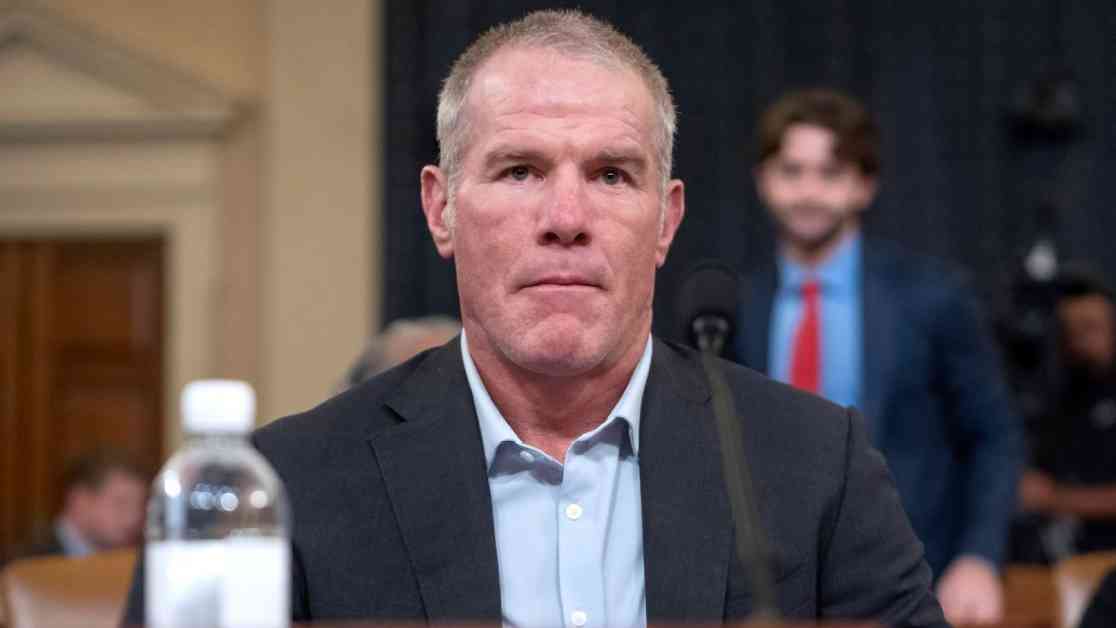During a recent congressional hearing on welfare reform, former NFL quarterback Brett Favre made a shocking revelation. He disclosed that he had been diagnosed with Parkinson’s disease, a degenerative disorder that affects the nervous system and can impact movement. Favre, a Hall of Famer, mentioned his involvement with Prevacus, a company working on a concussion drug that received funding from the government.
Prevacus’ founder, Jacob VanLandingham, faced legal issues related to misusing welfare funds for personal expenses. Favre expressed his disappointment in the situation, as he believed in the potential of the company to develop a groundbreaking drug that could help others. Favre’s personal connection to the cause became more significant as he shared his recent Parkinson’s diagnosis with the committee.
The former NFL star also reflected on his own history of concussions during his football career. Despite acknowledging only a few concussions officially, Favre speculated that he might have experienced over a thousand concussions throughout his two-decade-long NFL tenure. He described symptoms like ringing in the ears and seeing stars as indicators of concussions, highlighting the pervasive nature of head injuries in contact sports.
Favre’s testimony shed light on the broader issue of welfare mismanagement and the potential consequences of repetitive brain trauma in sports. His openness about his health struggles added a personal dimension to the discussion, emphasizing the importance of research and support for individuals dealing with Parkinson’s disease and related conditions. As a prominent figure in both sports and healthcare advocacy, Favre’s story resonated with many who followed his career and philanthropic endeavors.
In conclusion, Brett Favre’s candid admission of his Parkinson’s diagnosis during the congressional hearing sparked conversations about health, welfare, and the long-term impact of sports-related injuries. His testimony served as a reminder of the challenges faced by retired athletes and the significance of ongoing efforts to address brain health issues in various fields. Favre’s willingness to share his experiences and advocate for critical causes underscored the importance of raising awareness and supporting research initiatives to improve the lives of individuals affected by Parkinson’s and related conditions.








